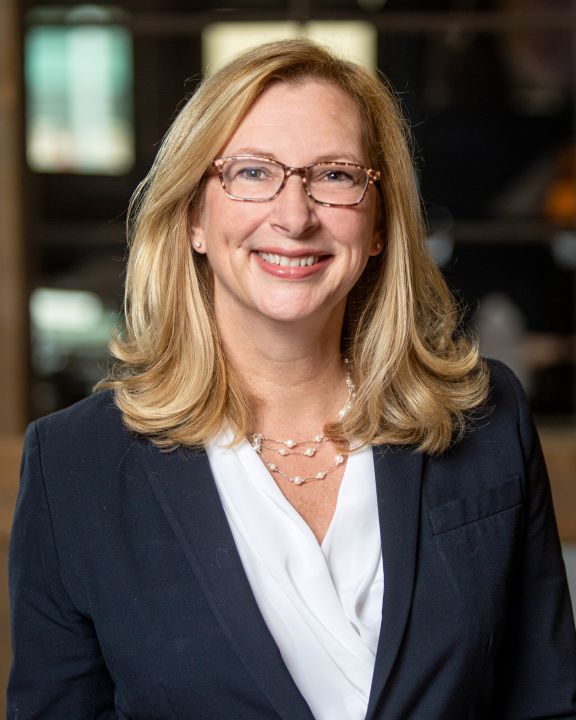The seeds for the joint purchase of the iconic McKay Tower building in downtown Grand Rapids took root years ago when the CEOs at Waséyabek Development Co. LLC and Gun Lake Investments started talking about doing deals together.
Gun Lake Investments CEO Kurtis Trevan and Waséyabek President and CEO Deidra Mitchell both started in their respective non-gaming tribal economic development roles at about the same time, and both also planted their companies’ headquarters in downtown Grand Rapids.
Along with economic development leaders from other American Indian tribes across West Michigan, Trevan and Mitchell began to meet on a quarterly basis to build inter-tribal relationships and share collective experiences. Over time, a common theme emerged.
“We’d talked for years about how tribes should be partnering with each other and how it doesn’t happen as frequently as it should,” said Trevan, a citizen of the Match-E-Be-Nash-She-Wish Band of Pottawatomi Indians, or Gun Lake Tribe.
Trevan got word through a relationship with a broker that the Borisch family’s Steadfast Property Holdings planned to put McKay Tower on the market, and immediately took an interest in the commercial property. Initially, he planned to pursue the transaction solely for Gun Lake Investments, with the tribal entity taking on “some level of debt” to finance the purchase.
“Before we moved too far with that conversation, we thought, ‘This feels like it could be a really good transaction to partner on with Waséyabek,’” Trevan said, noting his familiarity with the firm’s investment strategy and governance.
His instincts proved correct.
“Kurt called and we talked about it, and I said, ‘That’s perfect — that would be a great co-acquisition,’” said Mitchell, whose firm serves as the non-gaming economic development arm of the Nottawaseppi Huron Band of Potawatomi. “Like any strong relationship, it requires a lot of communication up front about how we’re going to manage the building and what the expectations are for making improvements and returns. It makes it a little more complicated, but that’s true of any partner that you go into business with.”
The two firms worked together on due diligence and ended up closing on the $17.5 million transaction on Jan. 13, 2020. Because of their similar governance structures, they were able to negotiate the transaction at the management team level, which is notable in Indian Country where many economic development firms require tribal governments to sign off on projects.
Gun Lake Investments and Waséyabek split the cost evenly and share 50-50 ownership of the 18-story, 154,000-square-foot building at 146 Monroe Center St. in the heart of the downtown business district.
The joint acquisition was selected as the winner in the real estate category of the 2021 MiBiz Deals of the Year Awards.
To run the building, Trevan suggested a governance structure modeled after best practices from family owned business enterprises by creating a three-person board with a seat for each of the tribally owned firms and an independent third-party member. The partners recruited Scott Spoelhof from Holland-based Bayside Capital Management LLC to fill out the board.
“With large buildings like McKay, there’s maintenance, capex and other improvements that we need to invest in to make sure the building remains in great shape, and those things cost a lot of money,” Trevan said. “You need to balance how does that fit within your strategies — and we have two distinct sets of strategies between GLI and Waséyabek — and ultimately what are your key stakeholders expecting?
“We needed to have somebody with some independence who’s going to see things with a different perspective and help us elevate out of the weeds a bit. It’s really provided a lot of clarity around how we plan for this in a way that we can all be aligned.”
Similarly, GLI and Waséyabek opted to work with a property management firm that aligned with their values and could deal with the day-to-day operations, ultimately selecting Grand Rapids-based Rockford Construction Co. Inc. for that role.
“Neither Kurt nor I had heavy experience in commercial real estate, so their experience across the industry has been very, very helpful,” Mitchell said.
In particular, Trevan cited Rockford’s assistance as being a “huge asset” after McKay Tower suffered damage during the social unrest last spring.
So far, the partners remain bullish on the future of the building and the prospects of continuing to work together. While the pandemic affected the building’s retail tenants most acutely, the commercial and residential space has remained “remarkably stable,” Mitchell said, noting her belief that the iconic building will hold its value for years to come under the tribal stewardship.
“We’re excited to be here and feel extremely blessed to have that trust and relationship with Waséyabek,” Trevan said. “We did something that has happened very few times in Indian Country, so we hope that it serves as a model for what tribes can do together. We can be doing more of that, and I think that’s really important for our tribes and for diversification plans.”
To learn more about the Iconic Mckay Tower please click one the link below.
Mckay Tower in Downtown Grand Rapids

![McKay Tower NY Times Article - McKay[34]](https://waseyabek.com/wp-content/uploads/2021/07/McKay-Tower-NY-Times-Article-McKay34.jpg)














